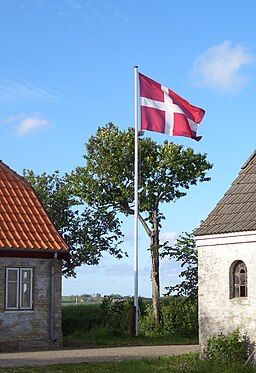
If the Danish R’s confused you, you’d better stop reading right now! The letter G is basically pronounced in three different ways:
• As the hard G of English girl. This is the ordinary sound of G when it comes in front of a syllable, a T or another G. (If you’re not quite sure what a syllable is, you can try to clap the rhythm of a word, like Ho-no-lu-lu. That’s four syllables!)
In all these words, then, the G is hard: grøn ’green’, igen [i-GEN] ’again’, digt ’poem’, hygge.
(Note that in a few words, there is an ”invisible” double G that can be seen only when the word gets some ending: tryg ’safe’ – trygge ’safe (plural)’; myg ’mosquito’ – myggen ’the mosquito’; æg ’egg’ – ægget ’the egg’. Even without an ending, though, this G should be kept hard!)
• As the W part of the English word now! This happens when the G follows an O, U, Å, R or dark A (as in far ’father’): tog [to-w] ’train’, uge [U-weh, most often becoming U-eh] ’week’, tåge [TO-weh] ’fog’, Norge [NOᵒʳweh] ’Norway’, brag [brah-w] ’clash’.
• As the Y part of the English word hey! This happens when the G follows an E, I, Y, Æ, Ø, L or light A (as in kat): at lege [at LAH-yeh] ’to play’, rig [ree-y or just reeh] ’rich’, syg [see-y with rounded lips] ’ill’, læge [LEH-yeh] ’doctor’, høg [hoo-y with rounded lips] ’hawk’, elge [ELyeh] ’elks’, tag [ta-y] ’roof’.
Notice the difference between dark A+G and light A+G: brag rhymes with English now, while tag rhymes more or less with English play.
A strange thing about ”light AG’s” is that they turn ”dark” when they’re lumped in front of another word to form a compound: flag (flag) is pronounced ”fla-y”, but a flagstaff is flagstang – pronounced ”FLA-W-stang”. A layer is a lag [la-y], but a ”layered cake” is lagkage [LA-W-ka-yeh]. Now that’s weird, isn’t it?





